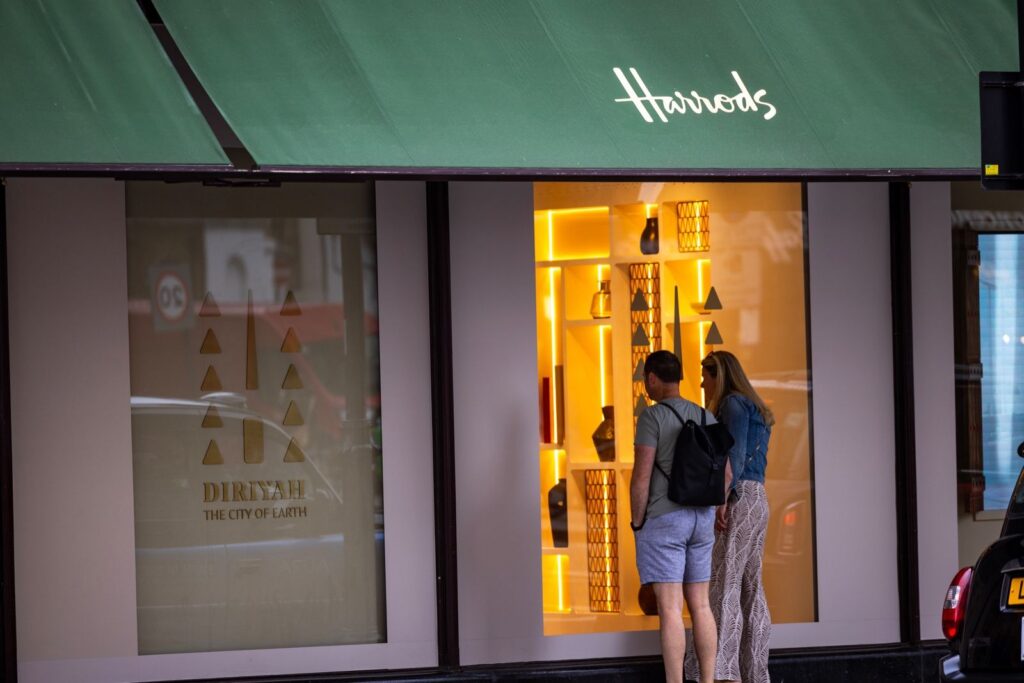Skift Take
Diriyah Gate wants over half of its development cost covered by foreign investors. That’s more FDI than the entire country brought in last year.
Diriyah Gate, one of Saudi Arabia’s largest and costliest projects, has been funded so far by the nation’s sovereign wealth fund, PIF. But Diriyah Gate Development Authority group CEO Jerry Inzerillo is confident at least half of its $64 billion budget will ultimately be covered by foreign investors.
“This morning I met with an Italian investor whoâs doing two hotels and an apartment complex with us,” Inzerillo told Skift on the sidelines of the Future Investment Initiative (FII) in Riyadh. “We [Diriyah] are building those hotels, but the investor is taking out that equity. Then we had a Colombian [investor] who wanted to invest in a fund to fund all of our [37] hotels. Big numbers, weâre talking almost $2 billion. Then we have the Emiratis coming, the Kuwaitis, the rest of the GCC.”
Inzerillo added: “Weâve already spent $15 billion of the $64 billion. Weâll spend the whole 64 but I’m very confident at least half of that will be taken out by foreign investment by 2030.”
It’s a lofty goal, considering the Kingdom as a whole had $26 billion worth of foreign investment last year, according to Minister of Investment Khalid A. Al-Falih on stage at the same event.
Al-Falih said: “FDI [foreign direct investment] is ahead of target. Last year we recorded $26 billion in FDI. Foreign investors in Saudi Arabia are voting with their money and their feet. The number of international companies set up in Saudi is 10x what it was before the Vision [2030] was announced.”
Inzerillo previously told Skift that Diriyah is on track to be completed in 2030, in time for the World Expo in Riyadh that year.
Diriyah’s Real Estate Business
Some of the money will be come from big investors, and some will come in much smaller pieces. The launch of branded residences in Diriyah is an example of this.
As is often seen in Dubai, Diriyah has been selling properties that are branded with luxury hotel groups. Ritz-Carlton, Oberoi, Capella, Baccarat and other branded apartments and villas are all being sold right now.
“We had 120 Ritz-Carlton apartments, we kept a few in our pockets for important people, but weâve sold over 110. We just had the co-CEOs of Oberoi in Diriyah and we have 10 branded villas, eight of which are sold. Baccarat residences are on sale, and Capella is on sale. Weâre doing well on the sales side. Those will probably be occupied by 2026.”
In July, Diriyah headed to the Harrods department store in London to pitch these properties to international buyers. A highlight of the event was the showcase of 350 residences.

Inzerillo’s comments come at a time when media is increasingly scrutinizing how the Saudi government is spending its money. Inzerillo spoke with Financial Times this month about how his tourism development is being “very, very mindful” in regards to spending.
“You probably saw what I said to the Financial Times,” he told to Skift. “We [Diriyah] want to be careful. Itâs not only about spending responsibly, that goes without saying, but geopolitically, you donât know where things are going to go. You need to be conscious, geopolitically.”
Foreign Investment in Other Mega Projects
At the end of April, BlackRock said it would be getting as much as $5 billion from PIF to invest in the region and build a Riyadh-based investment team.
That same month, Saudi flew dozens of bankers to Neom â Saudi’s biggest project â to explore âcollaborative avenues,â according to Neomâs CEO Nadhmi Al-Nasr in a statement. The event drew representatives from 24 international banks and financial institutions, including those from Europe and the U.S. and in the region.
Media reports have said parts of Neom, including The Line, has been scaling back. But according to Inzerillo, that could merely reflect shifting priorities into other Saudi projects.
“See, everybody is focused on what they think Neom is struggling with. Hereâs how to look at it: There was a lot of money originally committed to Neom, but that money didnât take into consideration the Kingdom would win the bid for the 2029 Winter Games in Trojena. So now, with the whole world going there to see the Winter Games, you need to put a lot of money into building Trojena.”
“Trojena couldâve been built before The Line, but now itâs before The Line. You need Trojena for 2029. A lot of it isnât austerity, quite the opposite. Itâs redirecting where the money goes.”
Neom did not respond to a request for comment from Skift.

